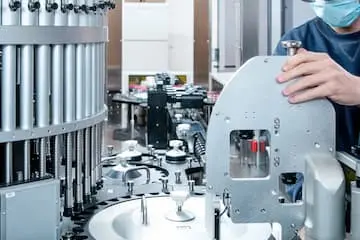The Science Behind Our Laboratory Glassware
Laboratory glassware plays a crucial role in scientific research, offering precision, durability, and safety. Our products are meticulously designed to meet the rigorous demands of various laboratory applications, from chemical experiments to biological research.
Precision and Durability
Our glassware is made from high-quality borosilicate glass, known for its exceptional resistance to thermal shock and chemical corrosion. This makes it ideal for handling a wide range of substances, including acids, bases, and organic solvents. The smooth surface of borosilicate glass provides excellent optical clarity, allowing for efficient inspection and monitoring of processes.
Versatility in Applications
Whether you need a simple stirring rod for chemical experiments or a complex glass reactor for synthetic reactions, our products cater to diverse laboratory needs. The optical ultra-clear glass sheets are perfect for optics applications, offering enhanced properties crucial for precision work. Our glass reactors, available in various sizes, provide precise temperature and stirring control, ensuring reliable and consistent results.
Customizable Solutions
At KinTek, we understand that every laboratory has unique requirements. That's why we offer customizable options for our glassware products. From adjusting the size and capacity of glass reactors to incorporating specific safety features, we work closely with our clients to provide tailored solutions that meet their exact needs. Our team of experts is always available to assist you in selecting the right products and customizing them to fit your laboratory's requirements.
Safety and Reliability
Safety is a top priority in scientific research, and our glassware is designed with this in mind. The high-quality materials and meticulous manufacturing processes ensure that our products are safe to use and reliable. Our glass reactors, for example, come with multiple safety protections, including controlled temperature and speed settings, to prevent accidents and ensure smooth operation.
Professionalism and Custom Services
We take pride in our professionalism and commitment to providing excellent customer service. Our team of experts is dedicated to helping you find the right products and providing customized solutions that meet your specific needs. Whether you need assistance with product selection, customization, or technical support, we are here to help.
Why Choose KinTek?
Choosing the right laboratory glassware is crucial for the success of your research. At KinTek, we offer high-quality products that are designed to meet the highest standards of precision, durability, and safety. Our commitment to customer satisfaction and our ability to provide customized solutions set us apart from the competition. Trust KinTek for all your laboratory glassware needs and experience the difference that quality and professionalism can make.
Ready to elevate your laboratory experience? Contact us today to discuss your needs and explore our range of high-quality laboratory glassware. Let us help you achieve your research goals with precision and confidence.
